I know that many of us worry about sugar intake for toddlers and it often feels like treats are everywhere. So let’s get into what you can do to keep your kids healthy—and what we really need to worry about when it comes to sugar.
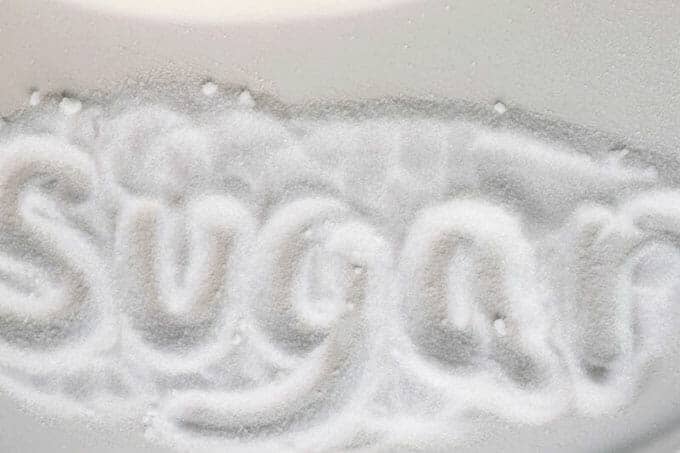
Recommended Daily Sugar Intake
The recommended daily sugar intake is the amount of sugar that’s recommended we eat in any given day. It’s typically presented in grams and is the upper limit of what we should eat, according to health organizations such as the American Heart Association. It correlates to the grams of sugar you see listed on a nutrition label on a food package.
The newest recommendation from the Dietary Guidelines says that kids under 2 should avoid eating all added sugars since their food intake is relatively small and eating foods with added sugars could replace an opportunity to eat healthier food. So remember that for context.
BUT…for the vast majority of people, that is simply not possible in the reality of how we eat and feed our families. And it can lead to demonizing of foods that can be a perfectly healthy part of a diverse and varied diet.
Table of Contents
- Recommended Daily Sugar Intake
- Is my toddler eating too much sugar?
- What Are Added Sugars
- What are Natural Sugars
- Effects of Sugar on Toddlers
- Is Sugar Addiction Real?
- How can I make sure my kids don't eat too much sugar?
- Best Store Bought Foods with Less Sugar
- Recommended Sugar Intake for Kids
- Further Reading
Your toddler won’t eat? Help is here!
Sign up for our email updates to get tips and ideas sent to your inbox.
Is my toddler eating too much sugar?
Sugar has gotten a really, really bad wrap and I think many of us are confused about what we really need to pay attention to when considering it’s place in our diet. And since added sugars are in almost everything that comes in a package or a box—and hardly anyone has time to scratch cook everything our families eat—I wanted to share some advice for how to think through the recommendation without making yourself (or your family) crazy.
Because attempting to count grams of sugar is really, really difficult in real life and may lead to a slippery slope of disordered eating.
Yes, it is important to help the kids learn to like foods that are not artificially made to be sweeter. But it I believe it’s possible to do that without needing to turn into the sugar police. Hear me out.
What Are Added Sugars
The term added sugar refers to any sugars that aren’t naturally occurring in a food—and these are the sugars that we are meant to worry about in the daily total. When looking at a label, added sugars include honey, maple syrup, cane syrup, high fructose corn syrup, brown rice syrup, fructose, maltose, dextrose, and more. (There’s a complete list of these terms here.)
You will find them in foods like granola bars, cookies, cakes, ketchup, salsa, jarred tomato sauce, fruit snacks, crackers, dry cereal, sweetened drinks, flavored yogurts, some fruit and veggie pouches, and many/most other snacks marketed to toddlers.
What are Natural Sugars
While it is true that there are sugars in fruits, vegetables, and milk products, those are not the ones the guidelines are suggesting we track. This naturally occurring sugar provides energy and makes food taste a lot better.
Effects of Sugar on Toddlers
Eating a high amount of sugar may lead to a host of issues including higher risks for heart disease, diabetes, high cholesterol, and more, which is why the American Heart Association cares. BUT, and this is a huge but: It is impossible to separate out correlation from causation in health studies so it’s possible that there are other factors causing those increased health risks.
Many believe that eating sweets can increase a preference for sweets, which if developed at an early age, can set a child up to want to eat more treats.
But what a lot of experts fail to acknowledge is that how we treat these foods with sugar could have just as much of an impact on whether or not the kids eat a lot of them or a little. Because when a child is told they cannot eat something or they can only eat a small amount of it—and it’s a food that is delicious—it is very likely to make them want to eat it more.
Our relationship with food matters. And we can’t separate out nutrition from the context in which we eat it, which includes our anxiety around eating.
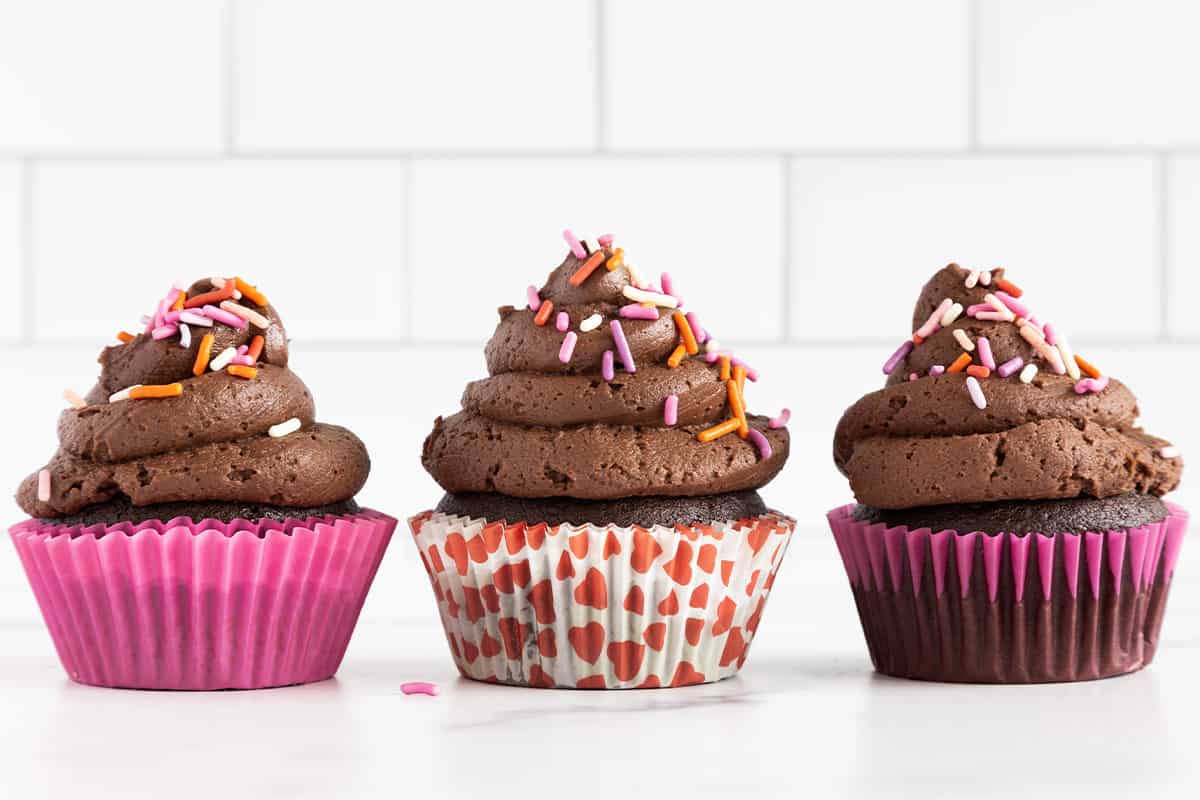
Is Sugar Addiction Real?
I myself have heard different takes on this topic of sugar addiction depending on who’s doing the talking, but there are some true differences between the way a person who’s addicted to alcohol reacts to that substance to how the rest of us react to sugar. There is also often so much emotion tied up in how and what we eat, that it can feel like an addiction even if it isn’t.
This post on the Burnt Toast newsletter is a great explanation of how sugar really works in our bodies.
How can I make sure my kids don’t eat too much sugar?
So here’s the rub with this advice and this worry: Unless you make every single food your toddler eats from scratch—which means no restaurant food, no family parties, no birthday parties, no playdates, no church events, no packaged snacks, and likely, no prepared food at daycare—there’s simply no way to avoid some added sugars.
And that is okay!
I actually don’t think the recommendation to have zero added sugars is realistic for the majority of families. (Though if you can make everything yourself, you do you!). I do make an effort to avoid adding sugars to baby food—they don’t need it flavor-wise and it’s fun for them to explore flavors in their original form (especially since they usually aren’t at all aware of anything else!).
But once a child is old enough to realize what other people are eating, I think it’s entirely possible to raise healthy kids who like a range of food and not demonize sugar. And I also think it’s possible to make some easy choices that can keep added sugars down and that can still allow everyone to enjoy delicious food without stress or the need to count sugar grams.
Buy the Food You Want the Kids to Eat
If you surround your kids mostly with the food you want them to eat, you can relax more when you’re out in the world and get ice cream at the local shop. Consider some healthier snacks, but don’t stress if they aren’t always eating “perfectly”, because really, that doesn’t exist!
Think in Terms of Proportions, Not Grams
Think about the food you serve in terms of proportions and aim to serve a lot of fresh produce, whole grains, and proteins at home and less straight up sweet treats. So more of some foods and less of others. That can be the simplest way to feel like things are in balance and the kids are having a lot of opportunities to eat nutrient-rich foods—and still have more fun foods.
Remember that Restriction Can Often Backfire
If the kids love a certain food and they are never allowed to have it, they will very likely want all of it whenever they see it. Remember that and consider serving those foods more often to lessen the power dynamics at play. (P.S. Kids don’t need to diet.)
Let the Kids Enjoy Celebrations.
I’ve never wanted to turn food into a battle or power struggle, so once my kids were old enough to know what certain foods were, they got to enjoy them at birthday parties, holidays, and other celebrations. I didn’t want them to be left out or feel like they weren’t worthy of certain foods—and I always remember that kids often behave differently at special events simply because they are exciting, not because of the sugar.
Talk to childcare providers with your concerns.
If you have concerns about the food or drinks that your kids are fed at daycare, talk to the director. They likely can share more information about the guidelines they are following and you can respectfully voice any concerns you might have. I like to remember that it’s a GOOD thing for kids to learn to eat a wider range of foods at daycare and school—we actually want them to be able to eat all sorts of foods made by a lot of different people as they grow to be confident intuitive eaters. And the meals in your house are still their primary influence.
Talk to family.
I always try to talk to family members ahead of visits about our food preferences and to reiterate how we usually handle our meal schedule. This can help if you tend to get emotional about food in the moment.
Enjoy your food.
I bake and cook with less sugar than most a lot of other recipes call for because I think it’s possible to make food taste great without making things just taste Sweet. But I still know that food needs to taste good for kids to eat it and the context in which we eat our meals matters a whole lot. It’s not just about nutrition—it’s about togetherness, feeling safe, feeling comfortable, and not feeling overly anxious about food.
Best Store Bought Foods with Less Sugar
Here are links to some of my favorite packaged, store bought foods with less sugar. I like to buy these sorts of foods, in addition to fruits, veggies, whole grains, and proteins to aim to keep things in balance overall—without stressing too much.
TIP: I actually think it’s okay to buy “regular” foods too, and to not make yourself crazy counting sugar grams since that anxiety is not good for your health either.
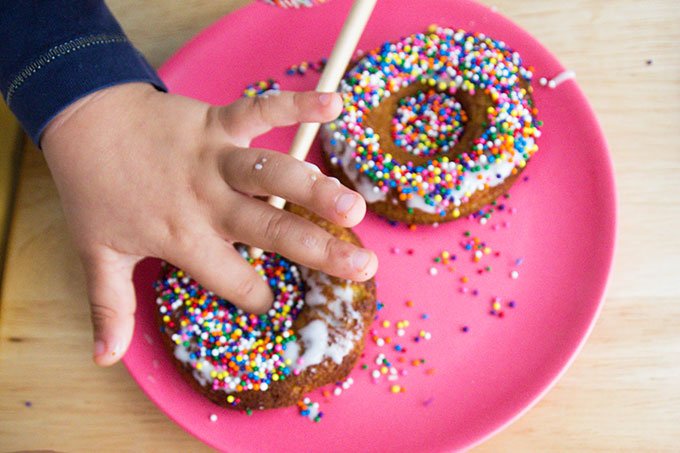
Recommended Sugar Intake for Kids
The recommended intake from the American Heart Association for kids aged 2-18 is no more than 25 grams or 6 teaspoons of added sugars each day. For reference:
- A fun-size pack of Skittles has 11 grams of sugar
- 4 Starbursts have 12 grams of sugar
- Regular vanilla almond milk can have 16 grams per serving
- Instant oatmeal pack can have 13 grams of sugar.
It can add up to 25 grams pretty quickly. (Though why the recommendation on this is the same for a 2 year old AND an 18 year old who might vary in weight by 100 pounds and have vastly different energy outputs is not clear to me…)
I’ve found that when sugar is offered at school, events, practice, and meetings, it can feel like treats are all the kids are eating. And I know (trust me I do!), that it can be very frustrating when you’re trying to set the kids up to eat healthy foods. In that context, I am more concerned about treats being used as rewards for doing things as it can detract from the intrinsic motivation of an activity.
If my kids are given food after an activity, we simply bring it home and have it with the next meal or snack—if they want it. And again, I try to remember the big picture. Are the kids moving everyday? Are they eating at set meal and snack times? Are they anxious about food? How are our family meals? The broader context in all of this matters.
Further Reading
For more context around the food we feed our kids, I recommend:
- The Eating Instinct by Virginia Sole-Smith
- Intuitive Eating by Evelyn Tribole
- Division of Responsibility
- What is Intuitive Eating?
Related Posts
This is a fairly nuanced topic that often gets oversimplified. I hope this helps you to consider how you treat sugar with your own kids. (And if not, comment below as I’d love to hear your thoughts!)
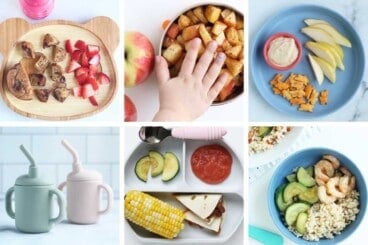
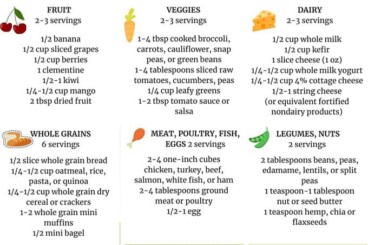

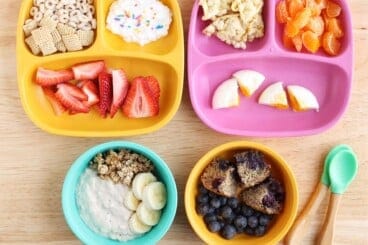
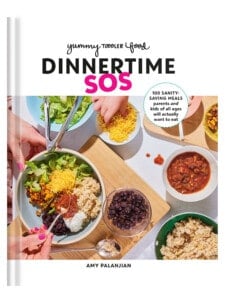
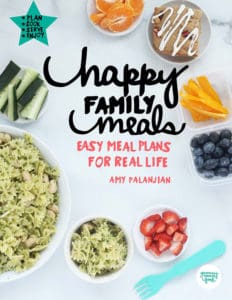

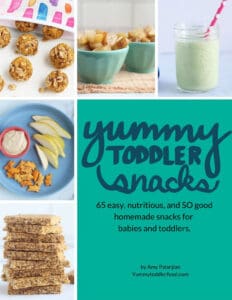















How much sugar (not including added sugar) is recommended for kids to consume everyday? We dont eat added sugar in our house, we have 4 little ones 5 and under. It’s hard to find good info on just natural sugar without added sugar being added into the conversation. Do you have an insight into this?
If you’re talking about sugars that are naturally occurring in foods, I have never heard of a number to be on the watch for (and that would be really hard to keep track of).
Bad rep not bad wrap
Great article! My daughter has always loved eating right from birth and has just recently learned about desserts up until 2 she pretty much had no added sugar but now enjoys and a few spoonfuls of ice cream shared with me or my husband and small portions of desserts I cook. Growing up with a mom who had an eating disorder landed me in the hospital at 14 and my sister became very over weight in rebelliousness. I’m happy to hear your flexibility because I am hoping for my daughter to have that!
I am so glad to hear that!
What about these “organic packs” that I see kids eating instead of their meals? Is there added sugars in them or just the fruits? Are they okay?
Do you have a brand or product name? I’m not sure what you’re referring to.
Thank you for helping me feel sane. I follow many of these same guidelines with my children. I was ridiculously strict with my son on sugar when he was younger and have had to compromise some now that he is almost 4 and my daughter (1.5) also wants what big brother has. We don’t have the foods in our house though and my children eat healthier at home than most relatives or friends. It’s sometimes hard for others to understand our choices and leaves me questioning if my kids are missing out, but I appreciate your article and the reassurance that I’m setting my kids up for a healthy lifestyle. We enjoy following you and trying all of your yummy recipes.
I’m glad it was useful!
Thank you for this article. Although my children are grown up, I have been so disappointed with the amount of sugar I see a relative feeding her daughter. I have been trying to figure out a way to address it without seeming judgmental. I don’t want to sound critical, and I certainly realize nobody wants unsolicited parenting advice. However, I’m watching this little girl preference sugary/ processed food and it’s horrible. For instance, she gets fed a doughnut almost every day. With a history of cardiac issues and diabetes in our family I can’t stand it anymore. I’m going to pass along this article and pray it’s received well. Thank you.
I hope that it’s helpful!
How can it be such a thing as recommend added sugar for kids (2 servings per day). Almost all the food is already fill with junk and sugar, giving it more added sugar on a daily is just promoting diabetes and obesity for you kids.
It’s recommended that they not exceed those amounts.
This article makes me sad. I didn’t even read it all because of how impossible you’re making it sound to avoid added sugars until 2 years old. I cook for my 1 year old every day. Yes, every single day. We also have 3 horses, 2 cats, and 1 dog. I take care of them too.
Our 17 month old has only had added sugar on his birthday. We let him have some whipped cream. There are plenty of packaged snacks that don’t have added sugars. Like, the Plum packets. Or, Shine Organic. Those have protein for sustenance.
If more people would encourage people to try, maybe it would help change our children’s health? I’m also still breastfeeding (my original goal was 6 months). Maybe we could all start setting new goals?
Oh, I wish you had read it because I say in a few places that the advice is totally unrealistic and that there are ways to keep sugar in check if it’s a concern. This is meant to be reassuring, not to make anyone feel like they aren’t doing enough. I’m always aiming to reassure people, especially when the advice is so disjointed from reality!
Hi Sarah – Sounds like you’re a stay at home mom which is very nice but we don’t all have that luxury in life. You are talking down to those of us working full time jobs or are single working mothers. Thanks for shaming us for needing to use a pre-cooked food item from time to time. I do my best and cook as often as I can, and pump and nurse till 18 months with two kids, but I still can’t make every morsel of food from scratch.
Yes!!! ?
I agree with you, I stopped reading because it sounds so negative. I cook for my 13 month old (even before the pandemic when I wasn’t home all the time) who has several allergies and she eats lots of whole foods. I am also still breastfeeding. The mindset of no added sugars under 2 being impossible is one of the many reasons why lots of kids grow to be unhealthy and over weight.
That last sentence is not true and while I am so glad you are able to cook mostly homemade foods, that is not the reality for many families. Until food companies get on board and adjust their products, it is simply not fair to put all of the onus on parents to 100% avoid added sugars. And if your child did go to daycare, you would find it completely impossible to hit that goal. I’m not saying it’s right, I’m saying it’s not the reality that we live in. And so it can help other parents to be realistic and make healthy choices given that reality. That does not mean a child will be unhealthy or overweight. It is not that linear of an equation as there are many other factors involved in living a healthy lifestyle.
I read the article and I tend to agree with you. At that age, parents are in complete control of what a child eats. Send the foods you want them to eat to daycare and inform the staff that they are to eat only the food you provide. No one said it’s easy, but it’s no where near impossible to keep added sugars out of a baby/toddlers diet. Sorry. Not bashing on anyone or trying to shame anyone’s lifestyle, but it is possible. I agree, we should encourage the possibility of it.
I agree that we should do the best we can, but many daycares do not allow food from home and a parent should not have to choose between a few grams of sugar and childcare. It’s simply not feasible for many families. Do your best with the options you have, is my point.
This post is so timely! I was just stressing about the fact that when my MIL watches my 2 year old once a week, she always shows up with a treat from the bakery – cupcakes, cookies, a box of Teddy Grahams, something full of sugar. I think she sees how we eat (fresh fruit, not much processed stuff, etc.) and feels like she can ‘treat’ my daughter once in a while. And at first, it truly was once in a while but it was become an every week ritual now that my daughter looks forward to (and my MIL prob does too because my daughter lights up when she sees her walk through the door with the treat!). If my daughter is eating well the rest of the week should I not stress too much about this? Or should I try to curb it? I am not great at confrontation and MIL dynamics are tricky enough as it is! Thanks!
Honestly, unless it really makes you unhappy or it’s negatively impacting the way your daughter eats or behaves the rest of the day, I think it’s okay. There absolutely is a way to include fun food into our kids diets and it sounds like this is a weekly ritual that they share and both enjoy. We have ice cream with our 4 year old once a week and we all look forward to it. She sometimes has other treats here and there, but there’s something to be said for the ritual of an expected treat:)